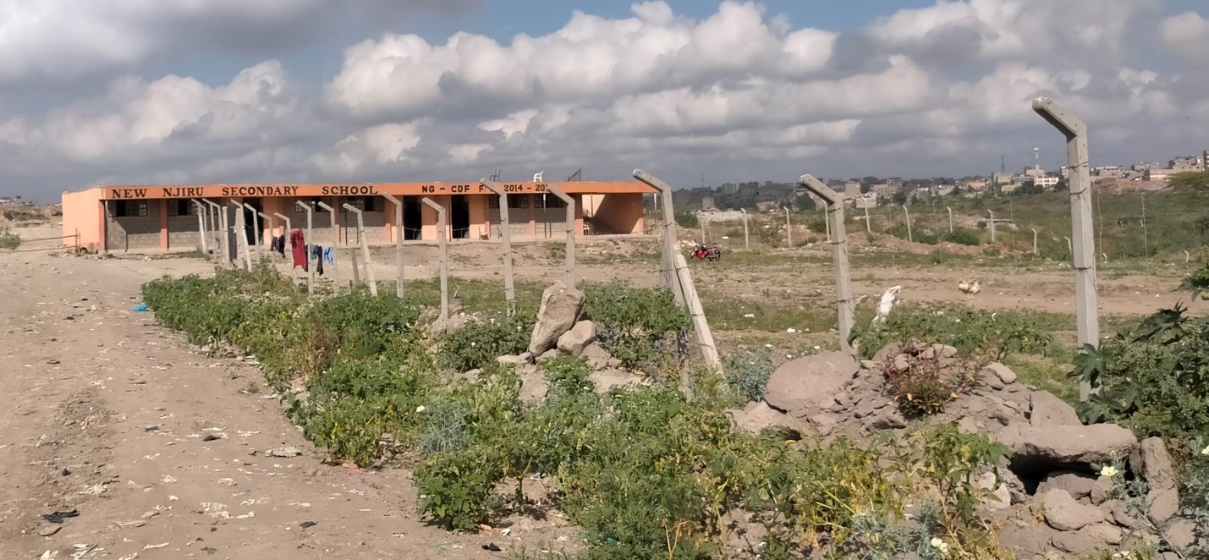 Education for all in order to wipe out ignorance, illiteracy and disease has been a government development agenda since 1963. The realization of universal basic education has been identified as a key pillar; and the most powerful instruments for reducing poverty and inequality and for setting the basis for sustained economic growth. It is no wonder education is touted as the key to success. It is the one thing that can bridge the gap between the poor and the rich through meritocracy. However, until recently Kenyan public education is riddled with inefficiencies and all manner of shortcomings. The issue of crowded schools, inadequate facilities, untrained trained teachers and poor results are the norm. The quest to have a public secondary school in Njiru area has been a grueling fight against the vestiges of leadership impunity.
Education for all in order to wipe out ignorance, illiteracy and disease has been a government development agenda since 1963. The realization of universal basic education has been identified as a key pillar; and the most powerful instruments for reducing poverty and inequality and for setting the basis for sustained economic growth. It is no wonder education is touted as the key to success. It is the one thing that can bridge the gap between the poor and the rich through meritocracy. However, until recently Kenyan public education is riddled with inefficiencies and all manner of shortcomings. The issue of crowded schools, inadequate facilities, untrained trained teachers and poor results are the norm. The quest to have a public secondary school in Njiru area has been a grueling fight against the vestiges of leadership impunity.
Njiru community is largely an informal Settlement towards the outskirts of Nairobi area with a fast growing population. This area is home to thousands of vulnerable households. Most residents live in squalid conditions and some areas lack proper social amenities. So the area is mostly unplanned, no public secondary schools, no clear inroads, narrow lanes, small dwellings,clogged drainages, no adequate water supply and no proper garbage disposal. Due to marginalization most areas end up being underserved on all fronts. These areas experienced high drop rates and low school enrollments because of the obstacles and barriers presented in them. The parents could not afford the basic requirements due to their low socioeconomic empowerment as much as they would wish to see their children in school.
Njiru Organic Farming Integrated (NOFI) group members decided to do something about the status of education in the community. Having the first Turning the Tide (TTT) training in 2018. The group had done several campaigns before and decided to use their skills and renewed mindsets to address the issue of the stalled secondary school project started in 2014-2015. They were now seeking for completion, official opening and enrolment of over 200 students from poor households in the area.
“The Turning the Tide training on non-violent approach to challenging social injustice has been an eye opener that has equipped our group with skills and tools to hold local leaders and public service providers accountable. This campaign is a dream come true since for many years there has been no public secondary school in Njiru Sub county. Having a public secondary school means improved education outcomes in terms of reduced drop-out rates, reduced crime rate and increased hope for a better future for the coming generations. Education remains the only hope from poverty for many people living in informal settlements like Njiru’’ said George Jiwe
Campaign process
- The group identified the stalled Njiru Secondary School as our issue and we started planning meetings on how the school could be completed.
- Held a series of meetings with different levels of stakeholders. the initial meeting comprised of NOFI members, Njiru village elders (nyumba kumi, Local area advisory council (LAAC) members, peace committee, community policing, local church pastors and the business community.
- Agreed on the issue and decided to conduct some research to establish ownership of the school. We sent a team to the Njiru Director of Education office to establish legitimacy of the school the Education board director Njiru Sub County brought the maps in the meeting. The school was confirmed as titled and legitimate for public use.
- Then decided to look for the area MCA’s and lobbied for their ally ship in advancing the
community interests. - After the meeting they went and escalated the matter to the senate committee on education. The senate sent a team of 14 senators to Njiru secondary school to discuss and deliberate on the stalled school issue.
All meetings were held in the school compound. Bwana Kithiomi, the Nyandarua senator was assigned to be in charge of following up the matter.
Community participation
Meanwhile, the community felt the need to hasten the building process by starting to clear around the school. They were also informed that erecting a toilet is a key requirement towards operationalizing the school. So, they formed a WhatsApp group where they started contributing money towards developing the toilet. They raised about 9000 Kenya shillings for the project.
Successes
Currently the school is operational. It was officially fenced, registered and launched. It has over 120 students in Form 1 and Form 2 cumulatively. All students in the school have been put on CDF sponsorship for one year by the area MP. They have 2 government teachers, eight B.O.G teachers all funded by the CDF funds through the MPs office. On 12/10/21 the ministry of education posted a government principal.
